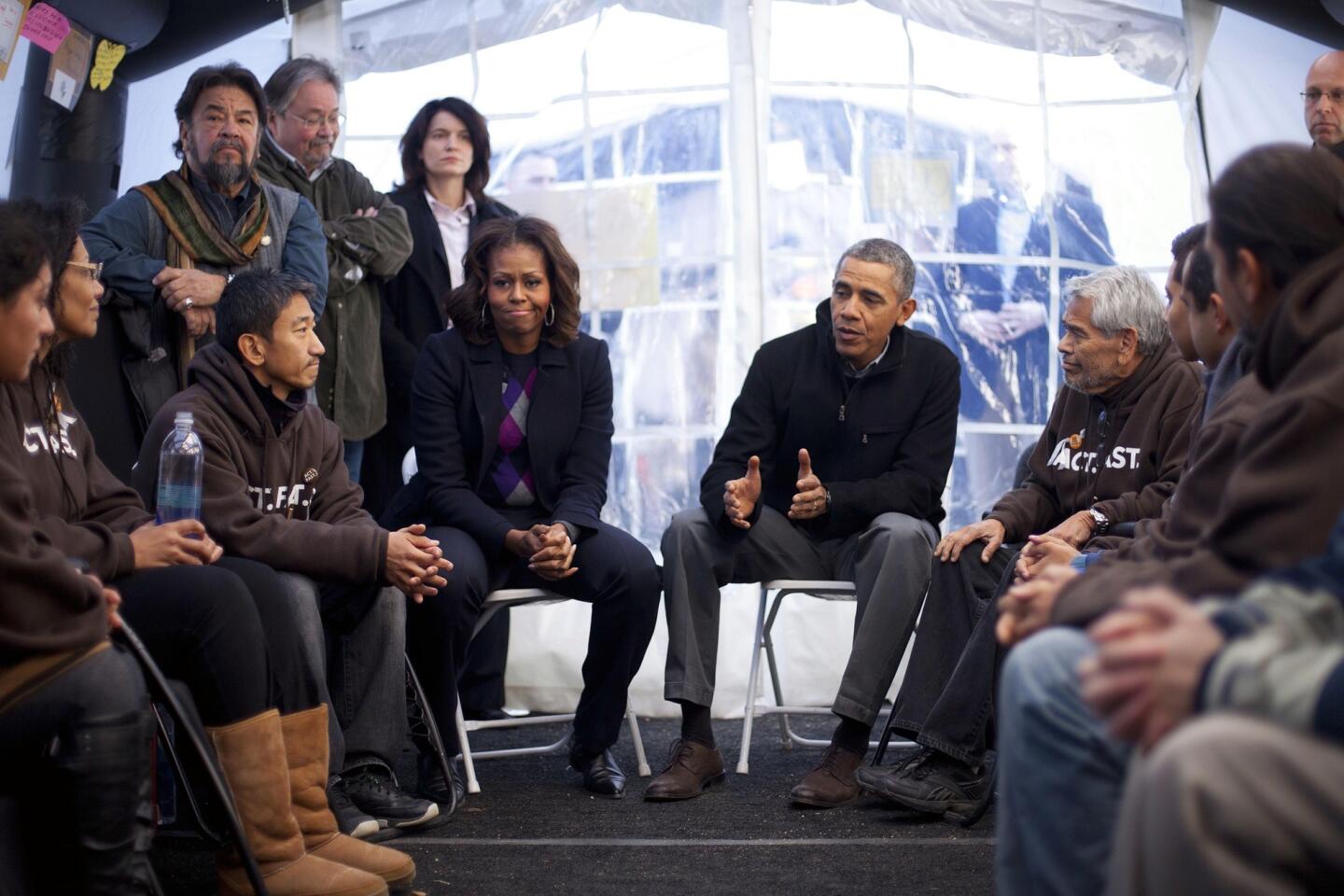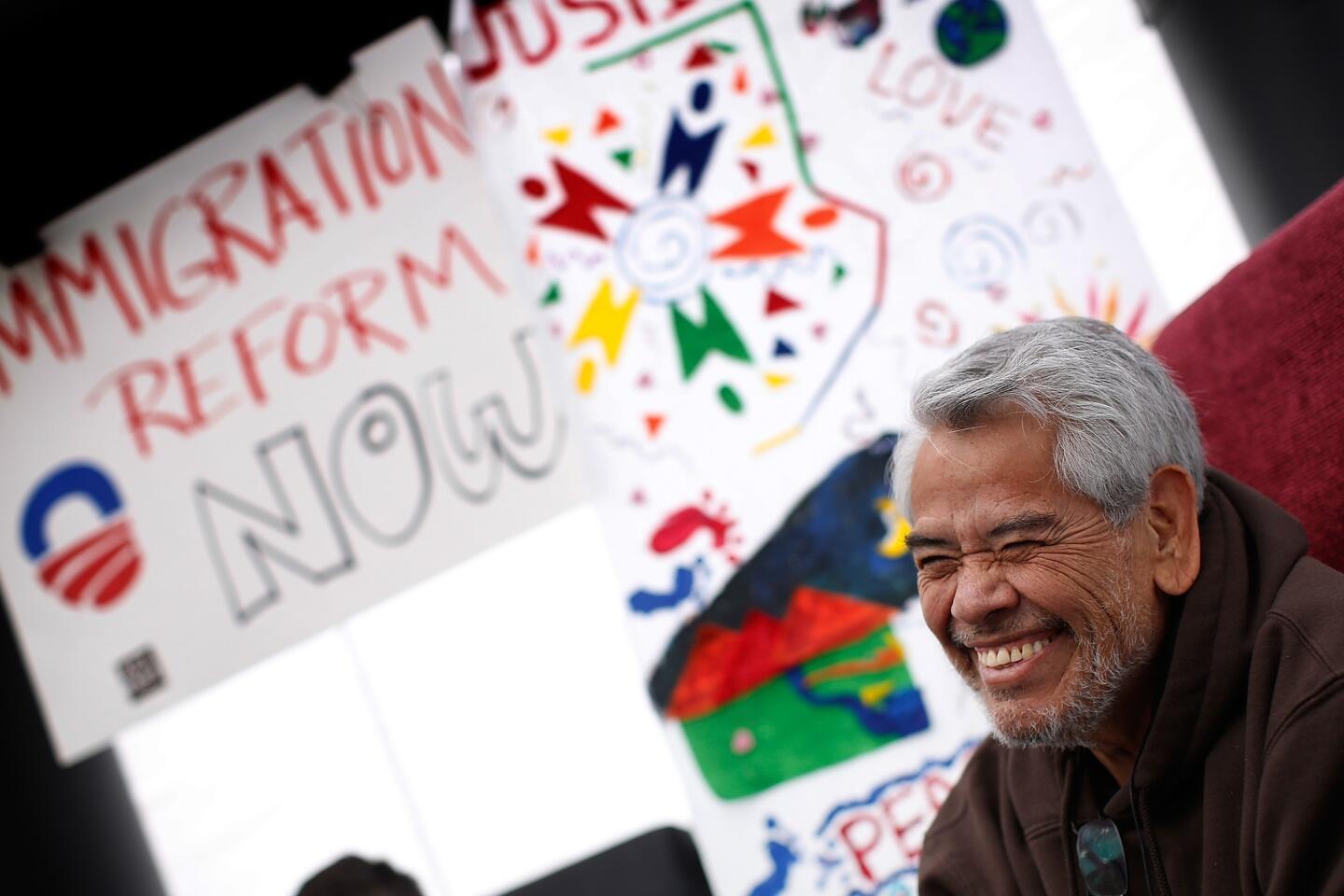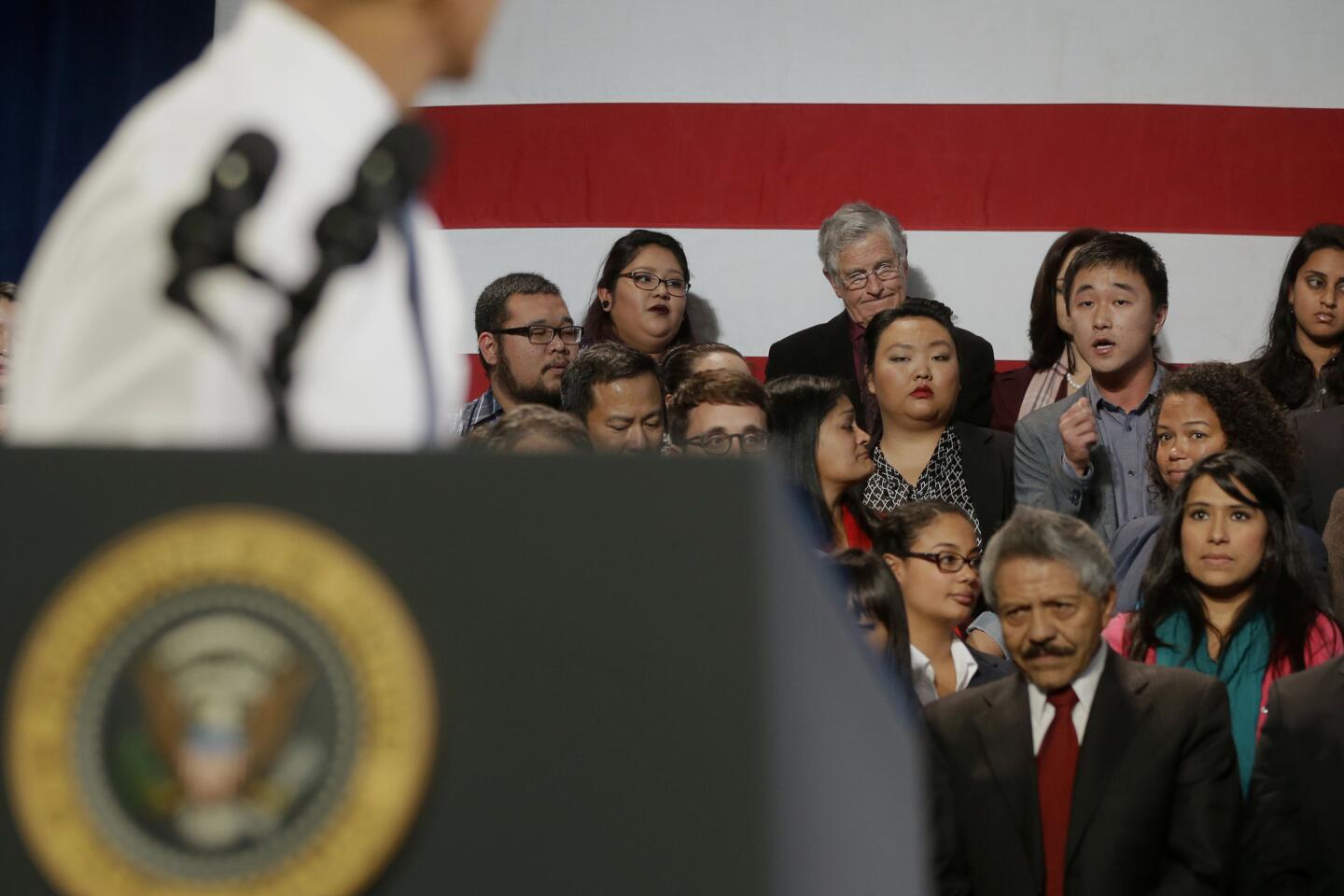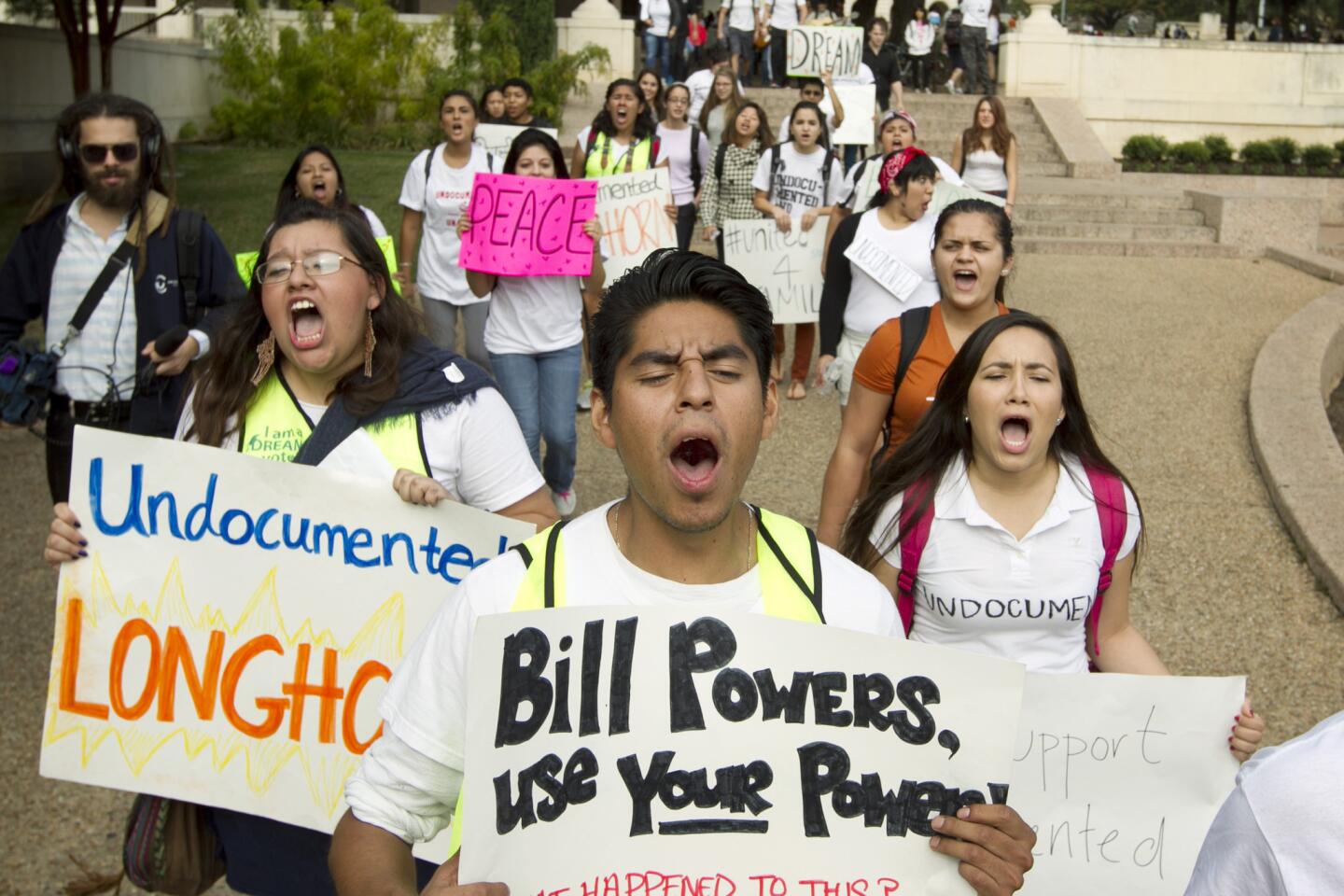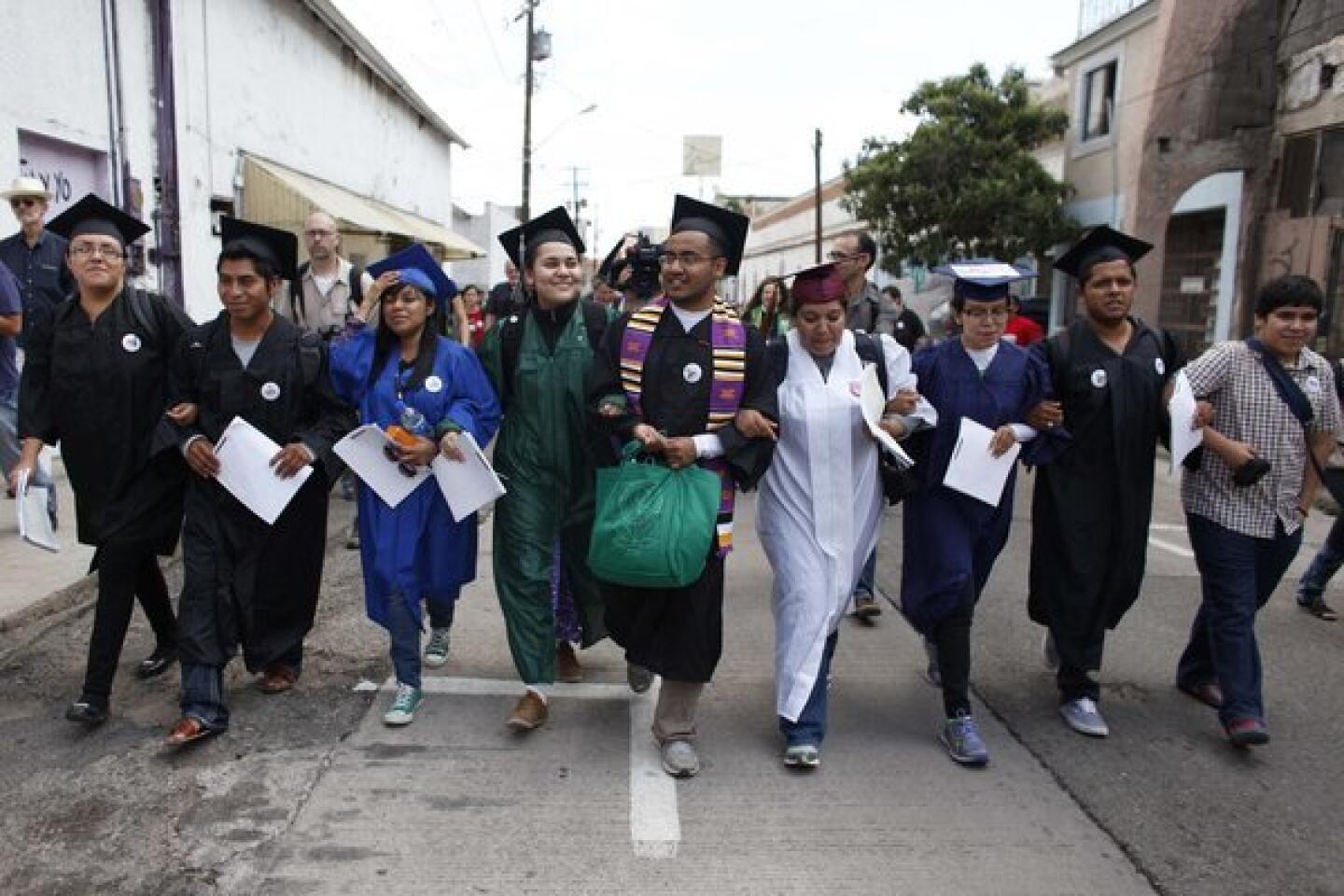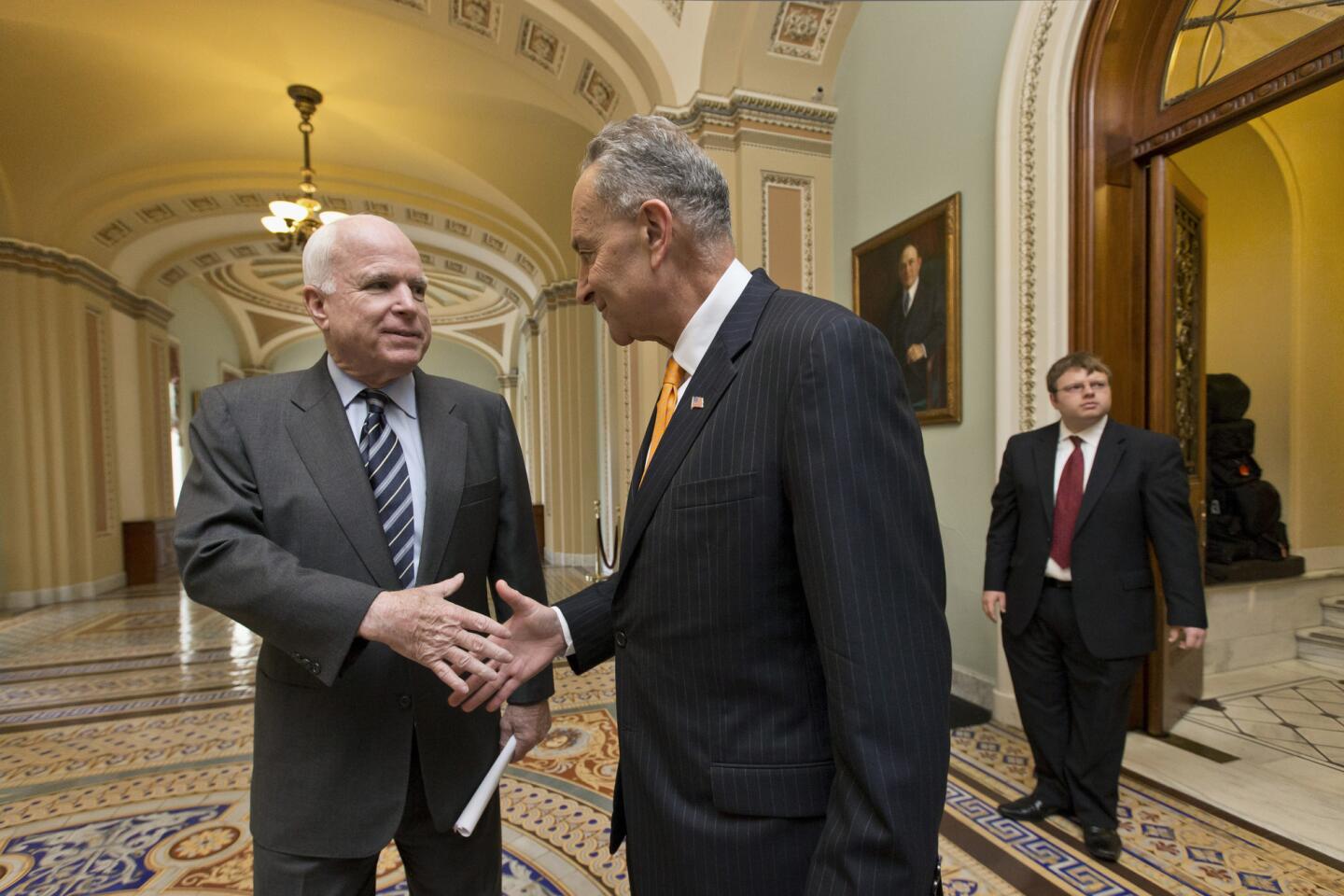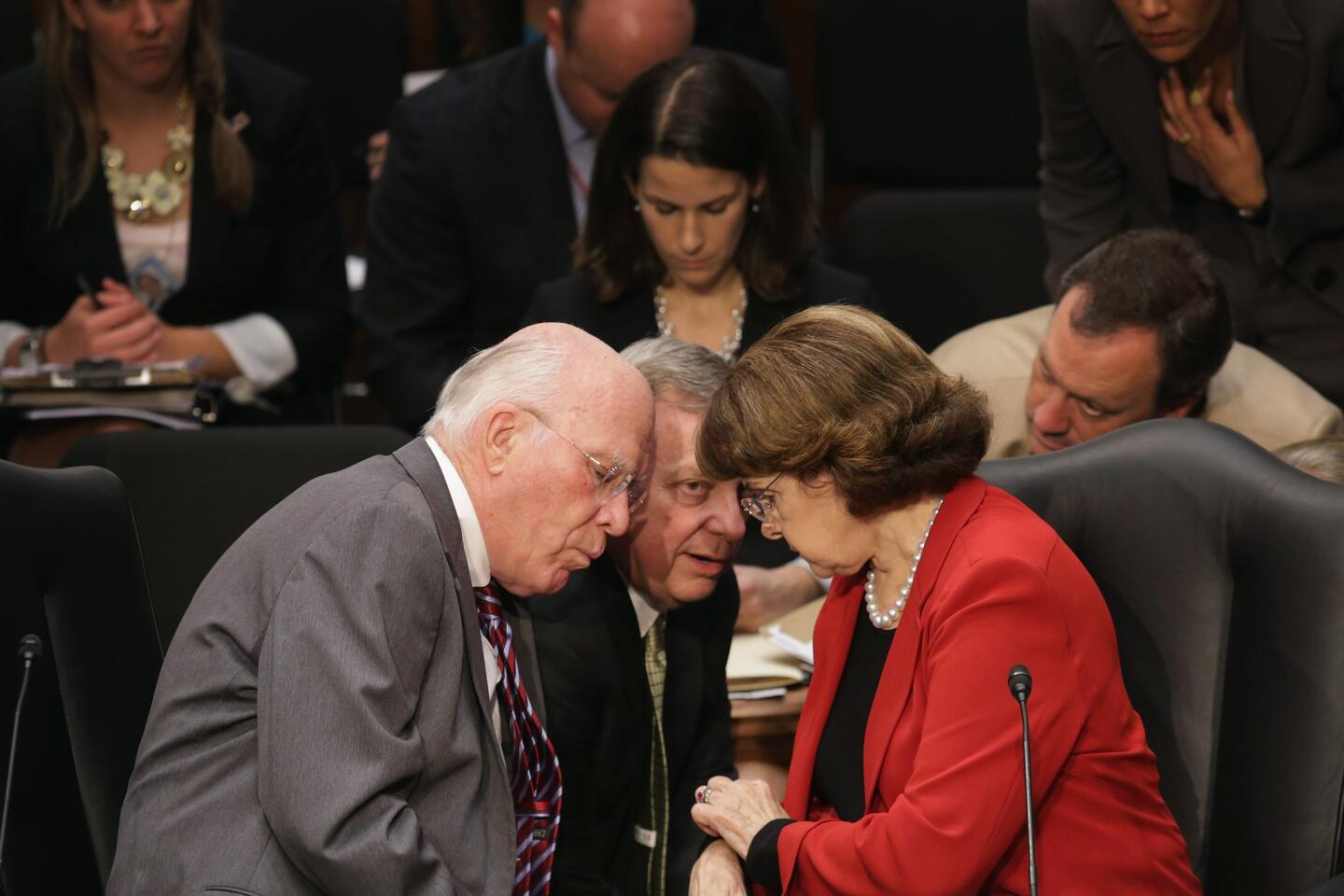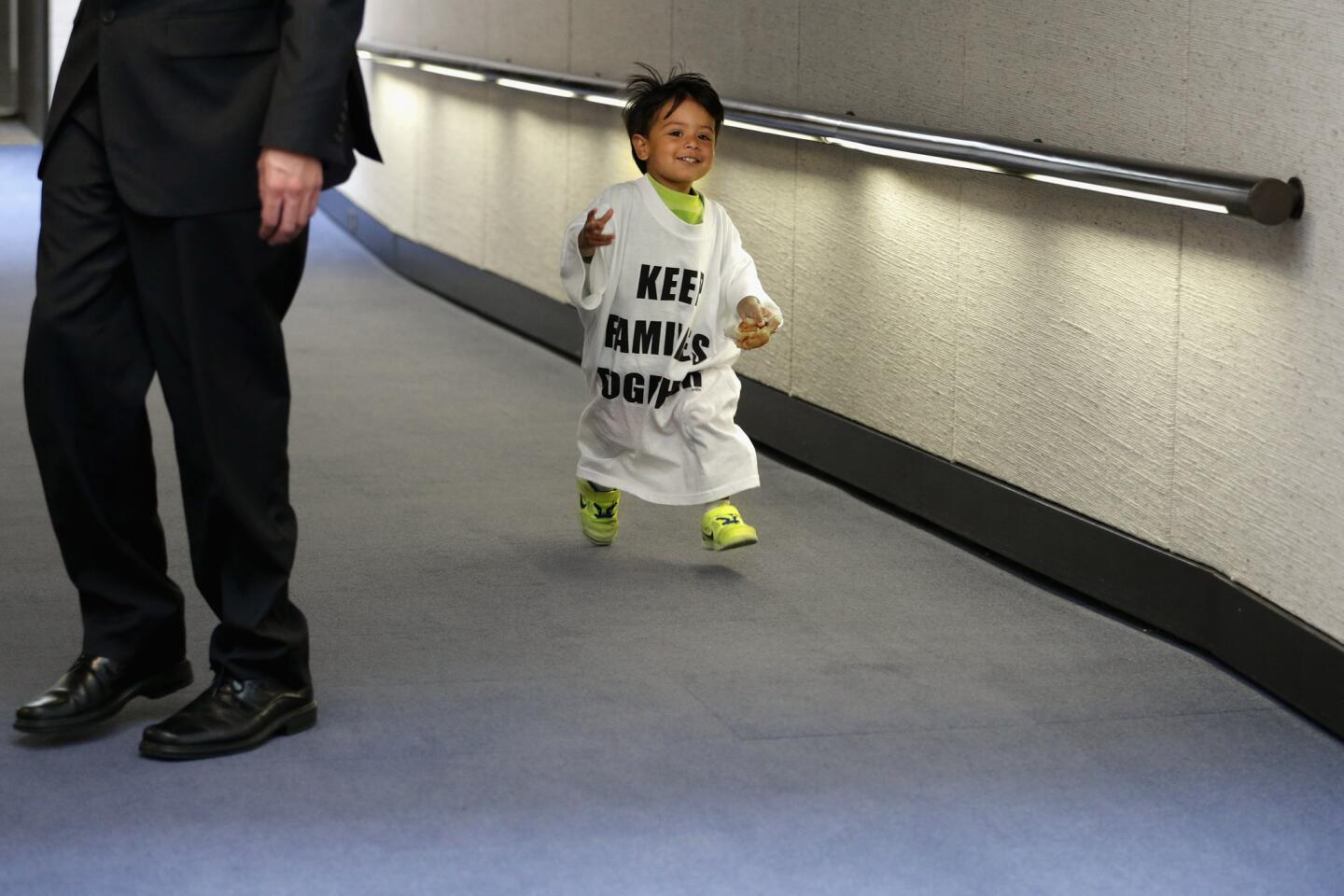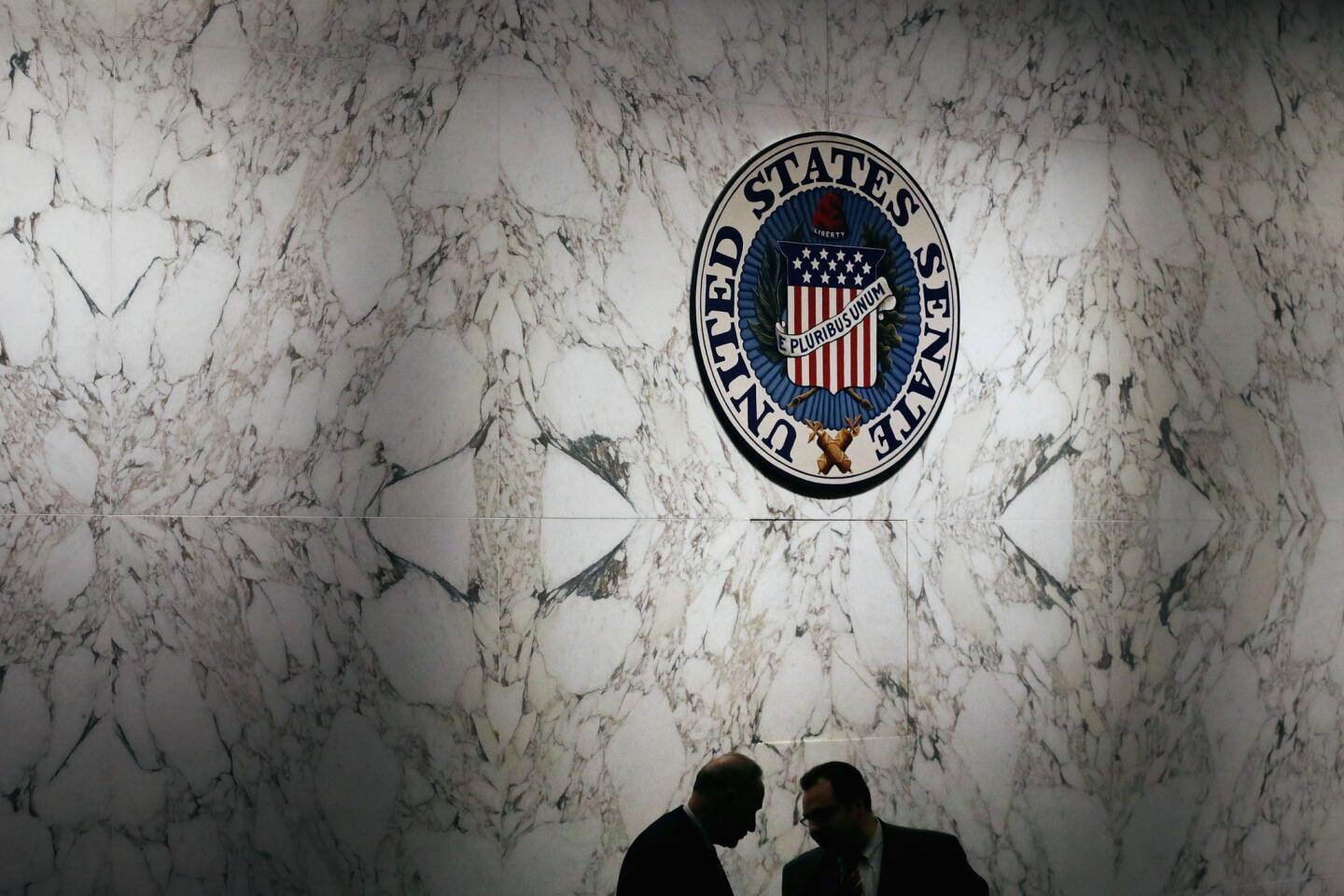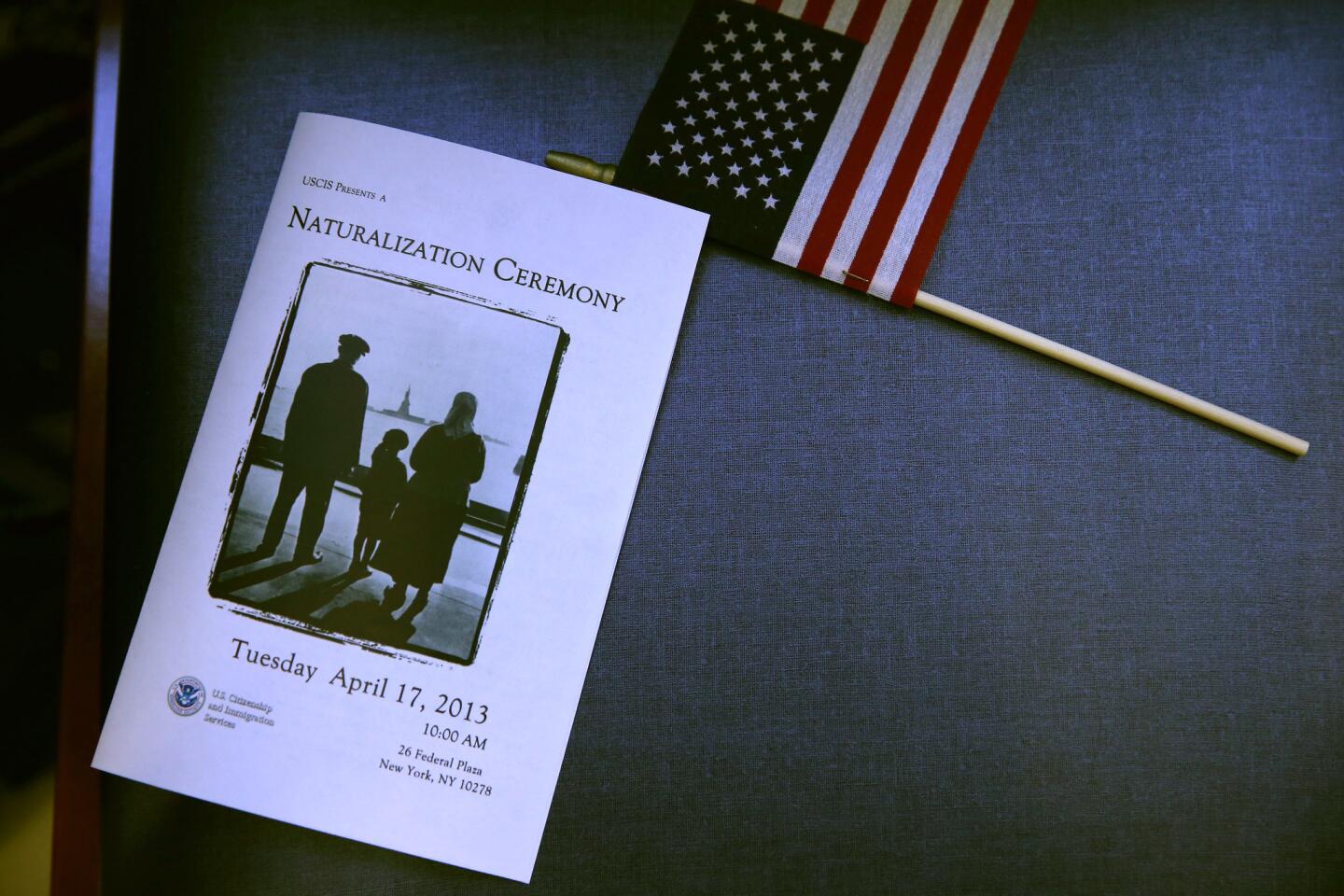The Bible’s case for immigration reform
- Share via
Some say it will take a miracle for Congress to pass common-sense immigration reform. That miracle may be in the making, helped along by Christians who want to put their faith into action.
FOR THE RECORD:
Immigration: An Aug. 8 Op-Ed article said 300 evangelical Christians confronted members of Congress on July 25 in support of immigration reform. It was July 24. —
On July 25, 300 evangelical Christians from 27 states had 110 meetings with their mostly Republican representatives on Capitol Hill to ask them to let personal faith replace political fear. Republican leaders told us we represented a “new factor” in the debate on immigration, a grass-roots constituency for reform that can influence the political right.
We offered a clear message to every member of the House, but especially those who consider themselves people of faith. Christians, including millions of evangelicals, believe fixing our broken immigration system is long overdue.
We aren’t primarily motivated by political considerations or even by the clear economic benefits immigration reform would bring. It is the biblical call to “welcome the stranger” and Jesus’ concern for “the least of these” that inspires us. Congress needs to pass immigration reform because it is the morally right thing to do.
Of course, God never ordains or endorses particular pieces of legislation — bills are always the product of compromises and limitations. But the principles contained in the common-sense immigration bill put forward by both Republicans and Democrats in the Senate are the right ones. The proposal could bring 11 million people out of the shadows, reunite families, provide an earned, achievable pathway to citizenship, respect the rule of law and secure the border — all goals that are broadly consistent with biblical values.
When three of the largest Republican constituencies — evangelicals, law enforcement officials and business leaders — are in favor of an immigration overhaul, it’s hard to fathom the arguments against it. Those whose position on reform is based on political fear, unacknowledged racial prejudice or worries about losing primaries to far-right ideologues are too often the same people who trumpet their religious convictions as guiding their decisions in public life.
Our claim to them is simple: Politicians who are professing Christians need to consider what their faith has to say about immigration. If they oppose reform and refuse to offer compassion to our immigrant brothers and sisters, they should justify their positions on moral grounds. We join with other faith communities in asking for a moral and religious conversation about immigration reform — not just a political one.
We don’t think a faith-based argument exists against immigration reform, at least if you’re reading the Bible closely. God’s passionate, abiding concern for immigrants and foreigners, strangers and travelers — and for our neighbors — is obvious to anyone reading through Scripture.
In the Old Testament, the Lord commands:
“When a foreigner resides among you in your land, do not mistreat them. The foreigner residing among you must be treated as your native-born. Love them as yourself … “ (Leviticus 19:33-34).
The biblical word “ger” for the foreigners in our midst occurs an astounding 92 times in the Hebrew scriptures, with the consistent instruction to protect them.
In the New Testament, the stranger, and all who are vulnerable, are at the very heart of the Gospel. In the book of Matthew, Jesus offers a vision in which caring for them is the defining mark of God’s kingdom:
“For I was hungry and you gave me something to eat, I was thirsty and you gave me something to drink, I was a stranger and you invited me in, I needed clothes and you clothed me, I was sick and you looked after me, I was in prison and you came to visit me” (Matthew 25:35-36).
That evangelical Christians would finally act to reform the immigration system should surprise no one, and not just for theological reasons. Undocumented immigrants have joined our congregations; we understand the problem firsthand. They are our brothers and sisters in the body of Christ. And we know that by reforming our immigration laws, we can create a system that also reflects the best values of our nation and the highest ideals of our faith. We act because, as the book of James reminds us, “faith without works is dead.”
Conservative Republican Sen. Marco Rubio of Florida has connected his faith with his vote:
“I think the biggest change hasn’t been in the pulpit; it’s been in the pews.... It’s one thing when 11 million is a statistic. The other thing is when one of those 11 million is your friend, a human being who you now know … as a father, as a husband, as a mother, as a worker, as a worshiper.... Our faith has always been about compassion and it compels you to do something. If you took compassion or the principle of compassion out of the Bible, it would be in tatters because it’s all over the place.”
Compassion is indeed all over the Bible. I pray it will also be found in the House of Representatives. It’s time for Christians in the House to stand up in support of immigration reform, or to explain why they won’t — as Christians. If they follow their faith, we will see the miracle we need.
Jim Wallis is president of the Washington-based Christian organization Sojourners. His new book is “On God’s Side: What Religion Forgets and Politics Hasn’t Learned About Serving the Common Good.”
More to Read
A cure for the common opinion
Get thought-provoking perspectives with our weekly newsletter.
You may occasionally receive promotional content from the Los Angeles Times.

